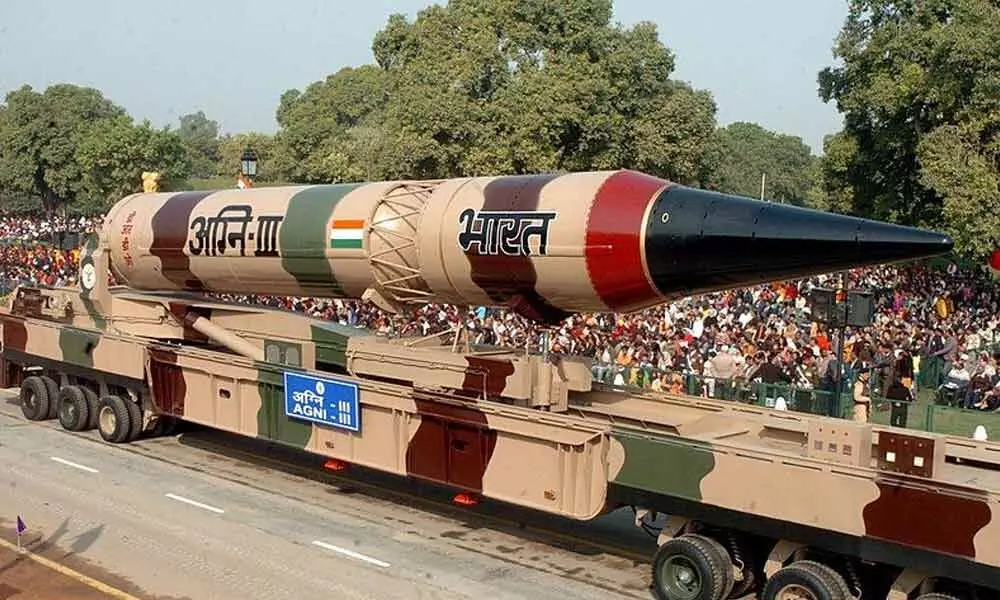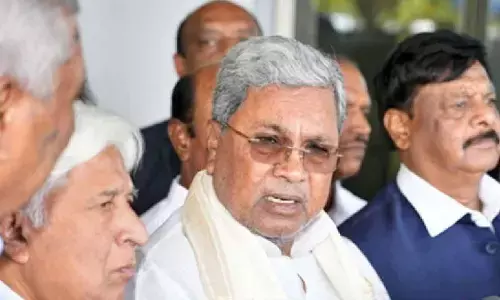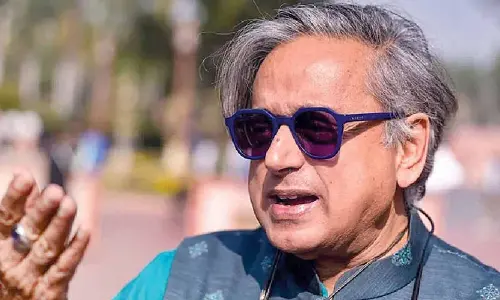China takes notice of India's ballistic missile test

China takes notice of India’s ballistic missile test
China has noticed with concern Indias test of its home-grown "aircraft- carrier killer "ballistic missile, Agni-P, which has left Beijing wondering whether New Delhi has found an equaliser to its once feared DF-21 D missile
China has noticed with concern Indias test of its home-grown "aircraft- carrier killer "ballistic missile, Agni-P, which has left Beijing wondering whether New Delhi has found an equaliser to its once feared DF-21 D missile.
The Hong Kong based South China Morning Post (SCMP), while raising the question on whether India's nuclear capable Agni-P medium range ballistic missile test- fired from an island in the Bay of Bengal matches China's DF-21D "aircraft carrier killer" weapon, it has, nevertheless, also sought to underplay its significance.
The daily pointed out that the Agni-P would not be able to target major Chinese cities, Beijing or Shanghai. But citing Indian media reports, it said that the new weapons could, nevertheless, strike enemy armadas in the Indo-Pacific region.
Analysts point out that so far China has self-congratulated itself for developing two unrivalled "aircraft carrier killer" ballistic missiles—the DF-21D and DF-26B. The DF-26D, said to be the world's first anti-ship ballistic missile, can target aircraft carriers within a range of 1800 kilometres with conventional warheads. But the more potent DF-26 B, with a reach of around 5000 kilometres, can attack with atomic warheads. Not only can it target aircraft carrier task forces, it can also strike the US concentration of forces in the island of Guam. Netizens therefore also call the DF-26 B as "Guam killer" or "Guam Express".
But the testing of the Agni-P missile overturns the strategic equation. The Agni-P has a range of between 1,000 and 2,000km (621-1,242 miles). It can be transported on trucks or by rail, greatly increasing its mobility and response time.
The SCMP quoted former PLA instructor Song Zhongping, as saying that the Agni-P "probably does not aim at the big cities of China or Pakistan, but tactical targets like armoured vehicle clusters or airports, for which it could do a better job."
Yet, he did not doubt India's will to turn the Agni-P into its full-fledged "carrier-killer" role. "Hitting a warship with a ballistic missile is a complex systematic project. It takes not only the missile itself, but also many other support systems – such as satellite navigation, terminal target identification, guidance and manoeuvring systems," he said. "I believe India has this demand and willingness to work hard towards this goal, but it will take time."
China has developed the DF-21D and DF26-B to undermine the US domination in the Indo-Pacific region on account of its much larger fleet of aircraft carriers, which can carry out offensive missions and exercise "sea control" in the region.
Unsurprisingly, the US, with the support of Russia, wants these two weapons to be scrapped under a new Intermediate Nuclear Force (INF) treaty, by drawing arms control commitments from China. The previous INF treaty, now defunct, was an arms control agreement between the US and Russia to eliminate all missiles below the range of 5000 kilometres. But with China now developing its own arsenal of intermediate missiles, and a new cold war on the horizon, the US insists that China should also be a party to a new INF treaty. A conversation of a new INF treaty is likely to be a part of future talks between the US and Russia following last month's meeting between President Joe Biden and his Russian counterpart Vladimir Putin in Geneva.














